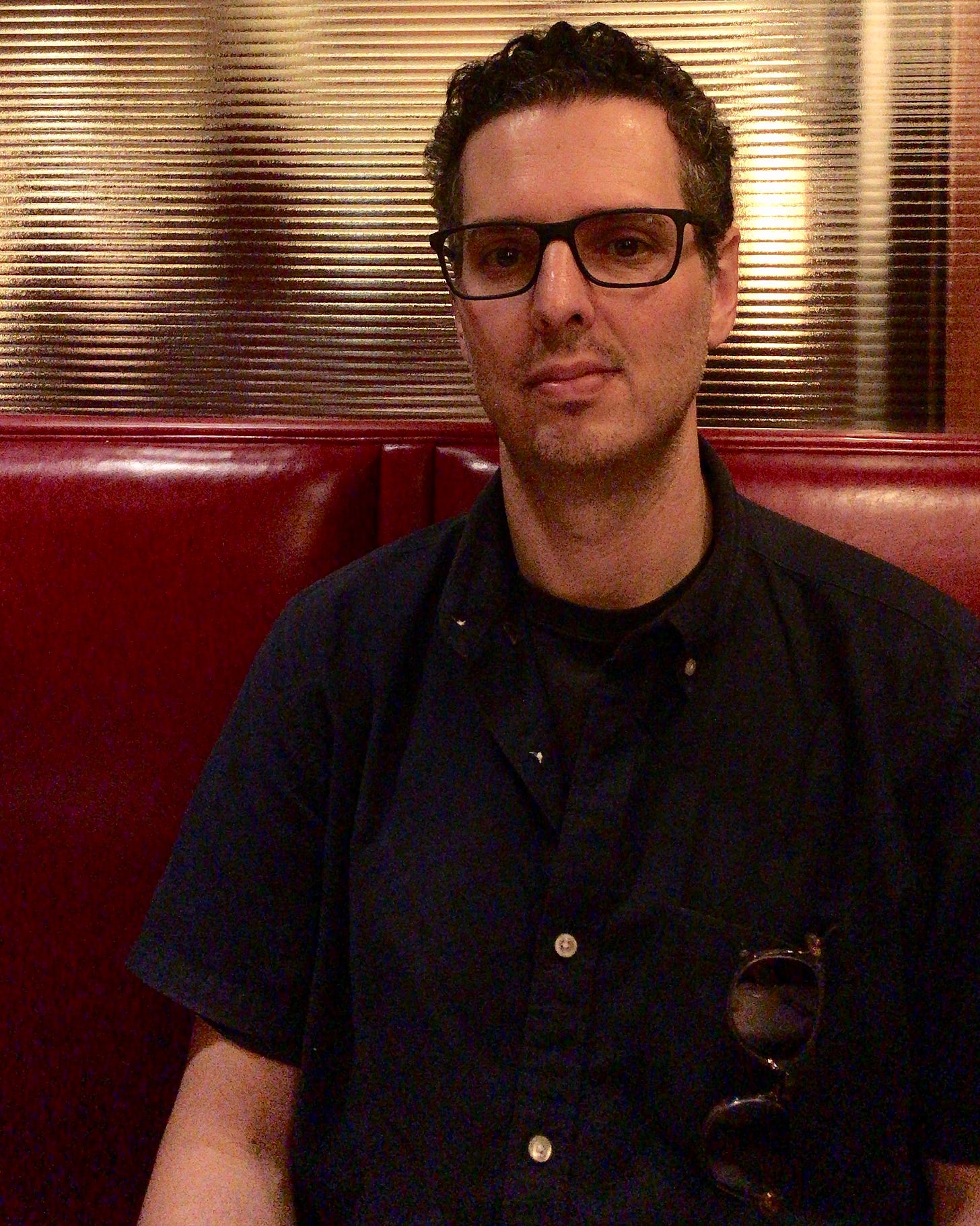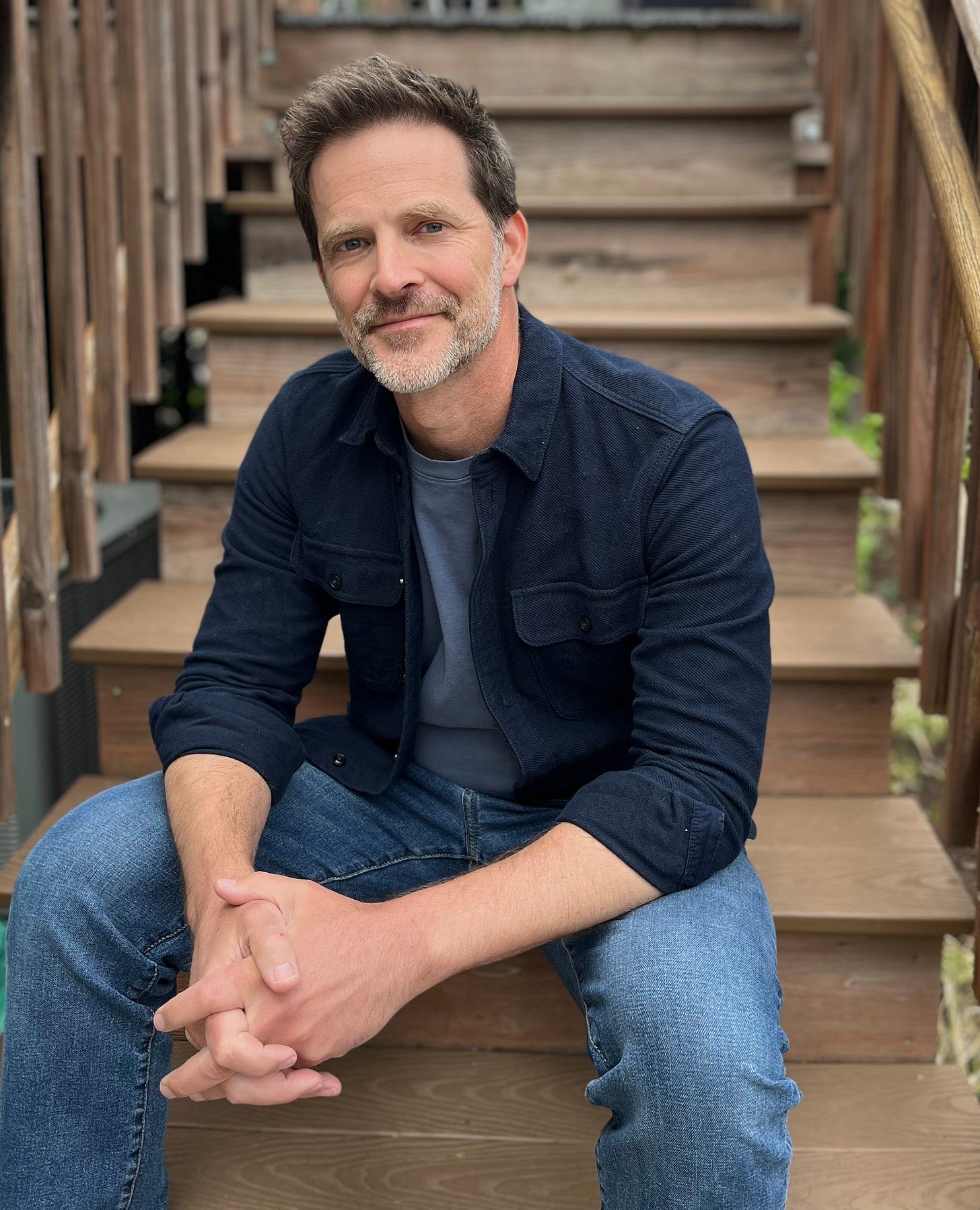The Fortnightly Interview: Making Friends with Failure
Jeremy T. Wilson chats with Vincent Francone, author of A Book No One Wants
Anyone who has ever tried to write has encountered failure. Even a grocery list falls short of its intention when the store is out of ripe avocados. For writers, failure is acute and ever-present, as unavoidable as…well, the store being out of ripe avocados.
In his new memoir A Book No One Wants, Vincent Francone tackles his own bizarre persistence in the face of such futility. For some writers, a book like this might be a self-aggrandizing tale of success in the face of steep odds, ending with the triumphant publishing of the book in question. But Francone has no use for such cliches. As a matter of fact, there is much that Francone has no use for: performative literary citizenship, performative poets, performative humility, performative scholarship. Relishing his part as a “typical Gen X slacker,” anyone or anything that whiffs of pretense is deserving of Francone’s poison pen.
And yet, there is charm in this screed. Not unlike the charm of a corner-bar regular, well past his raucous youth, now impressing patrons with his encyclopedic knowledge of twentieth century authors and his ability to stay upright on his stool. I had a chance to catch up with Vince via the highly intimate quarters of a shared document where he weighed in on my questions regarding the writer’s relationship to truth, the homogeneity of literature, and, of course, failure.
It seems to me the goal of most writers would be to write a book that someone wants. So what was the impetus for writing A Book No One Wants and how did I come to be holding it in my hands?
I’m a liar if I claim I don’t want readers. But I don’t seem to be very good at attracting them, to which I must credit my tendency to self-destruct. I don’t find that heroic, but I have a don’t want to belong to any club that would have me mentality that drives me away from doing what people want: writing a book with developed characters and a sustained narrative. I’ve tried to write books people want before and failed, but this time I thought: What if I write a book no one wants? Might be fun to indulge my worst instincts: digression, fancy-pants literary references, solipsism, episodic narrative, and what one former boss called my “caustic” sense of humor. So I went for it.
I was pretty sure it wouldn’t get published, but then my partner at Jabber Literary, conceived as a web journal, suggested we try publishing print books. Having tested our editing/publishing mettle, we’re putting out a book of plays by Chicago writer Caleb Roitz in 2025 that will benefit from lessons learned by mucking up the first projects. Or so I assumed, but it turns out this book no one wants looks pretty good. Certainly better than Ingram’s print-on-demand model.
Speaking of Jabber, my fellow editor August Crowe sees this book as a guide for the frustrated writer trying to navigate the landscape of American publishing, a sort of how to book with jokes. I like that, though I suppose I wrote it more as an exaggerated, coded confession. Maybe others similarly situated will find catharsis from it. My fear is that I’m doomed to only write weird books, in which case there’ll be more books no one wants in the future, but hey, you can say that about half of what’s on the shelves at Barnes and Noble.
The back cover lists the genre as "nonfiction?" And in the opening section titled "Success" you recount the time you sat on a panel with other memoirists and said: "I don't understand this need to be faithful to so-called truth." I don't need to tell you we're living in a dangerous era where alternative facts hold enormous power. So why so deliberately call attention to the fact that you might be making it all up?
Great question. Perhaps because we’re living in times where truth and fiction are so dangerously intertwined, it’s best to bring more attention to the artifice. I admit my book has a cynical tone, but if there’s anything positive to draw from it might it be that when politicians, charlatans, and Silicon Valley oligarchs craft discourse in a mendacious manner solely for their own craven needs, knowing that so much of what reaches us is utter bullshit is helpful. We’re burdened with doing our own fact checking, which is horrible. We’re the ones who have to take this huge responsibility? I know the time of nightly news and gatekeepers was not exactly a Platonic ideal, but if the average Joe and Jane have to now become infinitely more media literate just to parse truth from disinformation, well, that’s not good either.
Best to put it out in the open: my book is equal parts truth and bullshit. If there’s any such thing as truth, that is. We make our own realities half the time, and while that’s problematic as hell, it’s largely always been the case. Now, scaling back the quasi-philosophic talk for a second (you’re welcome), let’s think about literature. Where is it written that memoirs are built on anything more sacred than individual truth? And while I’m loath to call my book a memoir, it might fall under “creative nonfiction.” But even if I didn’t stupidly complicate that distinction with a question mark, “nonfiction” isn’t “journalism.” So I figured I’d write the book I wanted, which is a reflection of my (admittedly skewed) perspective on largely true events with more than a little poetic license. If readers leave the experience a wee bit more doubtful of the “truth” in creative nonfiction, I don’t see that as a bad thing. Perhaps my goal to make people more skeptical is utterly bleak. I’ll repent. Pass the hairshirt.
If I can add one more bit of support, the great writer Dermot Healy said writers “not only make up things, but get things wrong as well. Language, to be memorable, dispenses with accuracy.” So I’ll take dubious shelter under that highfalutin literary reference.
Speaking of highfalutin literary references, your book is chock full of them. You seem to be making a distinction at times between what would be called—for lack of better terms—“difficult” fiction (books no one wants) and “easy” fiction (books that sell). How much of your frustration rests upon the conflation of literary merit with difficulty? Which is to say, you chronicle several attempts to write a “book that someone may want to read (BTSMWTR)”, yet all of them fail. Is this because you’ve committed yourself to difficulty?
Probably too much of my understanding of literary merit rests on a fascination with difficulty, but I don’t think “difficult” always equals “quality.” Vonnegut and Ali Smith are heroes, and their books go down like water. “Different” is often misunderstood as difficult. I do think there’s a sort of homogeneity that threatens what I call “literature,” and maybe too many writers play it safe because that’s what gets you an agent. Or maybe I’m just bitter.
I admit that I get in my own way. I don’t know if I have it in me to write a “normal” book. The closest I came was my first, and I don’t really like that book because it’s too normal. Sadly, I lack both highbrow innovation and bestseller appeal, so I’m somewhere in the middle. Typical Gen X slacker.
Anyway, I don’t always demand that books be difficult, but I do applaud ambition and experimentation, even if it flops. And I can’t claim to be a fan of all of it. Never finished Infinite Jest. Not every “difficult” book is fun, and fun is of highest importance, even if the fun comes from a challenge.
At the risk of oversimplifying (and hurting feelings), how would you describe the “homogeneity” that threatens what you call literature?
I’ll first admit that I get bored easily, so when I see a book do something that follows a rote model, however well-executed, I get a little dismissive. Not proud of that, and I never claim the book is bad or anyone who likes it is wrong—the problem is always with me. There is art I like, art I love, and art I don’t engage with. That last statement should demonstrate that I’m at fault, not the art. Not everything is for me, nor should it be. That stated… books repeat themes because publishers are running businesses that need to make money, allegedly. So why wouldn’t publishers look for something similar to what’s sold well? I’m thinking of how Angela’s Ashes was followed by a slew of memoirs because suddenly memoirs were hot. But I don’t know how many more ‘growing up in poverty with an alcoholic dad and a long-suffering, emotionally unavailable mother’ books I need. None of these are inherently bad books, but I wonder if the trends steer writers away from more interesting ideas.
That stated, white dudes have exploited trends better than anyone, haven’t we? How many edgy asshole Bukowski, Hunter Thompson knockoffs are there? I tried to read one by the son of a writer I admire, and it felt like a forced parody of his dad’s work. Pass.
There was hardly a golden time where homogenous art wasn’t being churned out by presses or movie studios. Certainly true with music. I remember the parade of bands that got major label deals because executives wanted the next Nirvana. Then we got the Stone Temple Pilots, about whom I will happily shit talk. Watered down imitations of something once unique. That’s what I most dislike. Which is also why this book no one wants is a book no one wants—I’m not breaking any ground, really.
Anyway, writing is hard and submitting is scary. You’re opening yourself up for rejection. Why wouldn’t we make ourselves a tad safer by revising our odd little books into something closer to the trend? I get it.
Your book suggests that rejection, or more accurately failure, is really the default state for the writer, no matter how much material or popular success: “All the things we imagine writing are better than what we write.” So this means we are always failing, falling short, not hitting the target. So why write in the first place? Are we all masochists?
Yeah, maybe. I see most writers as subs, you know?
In the book, I call Coleridge’s fragment-poem the best imaginable because it suggests a poem so good it could never exist. Pasolini’s Decameron suggests that dreaming is better than any art we can produce. So I’m not the first to make this point. The artist executes their vision as best they can, but what is the result but an artifact of failure? A good piece of art is maybe one that comes close, but I don’t know if we ever get there. If I execute a perfect book that 100% conveys my vision… sounds great, but how to do that? Imagination, ideas, the ethereal shit in our heads is more gorgeous than what we write, right? Maybe the great books are the ones that feel fully realized, but I’ve read about people like Joyce revising up to the last possible second before publication. Kiese Laymon bought the rights to his books back so he could revise them. He has his reasons, but I think most of us, if we see old work, understand that we could do it better, get it closer to what we envisioned. Once it’s published, it’s done.
I’ve tried in this book to make friends with failure, not because I’m giving up so much as failure isn’t the worst goal there is, depending on how we define failure. If we see it as a damn good effort that gets close without hitting the mark, which is probably impossible, then isn’t failure a fine option? Isn’t that what makes us human? Maybe AI will make perfect art. Sounds dull, no? Maybe there are artists out there who execute their visions perfectly in whatever medium they work in, but I’ve not met them. I’m sure I wouldn’t like them.
Samuel Beckett, or at least his famous quote: “Ever tried. Ever failed. No matter. Try again. Fail again. Fail better” acts as a sort of lodestar for your book. How do you interpret these lines, and what do you think Beckett would say about the particular ways his words have been misappropriated?
Sam (as I like to call him) was pretty enigmatic, so I wonder if he’d say much about how he’s been used as corporate/tech bro inspiration. Then again, he was quick to assert his authority over stagings of his plays that deviated from his directions, so maybe he’d be a dick about this.
I thought the point of Worstward Ho was to strive for a better failure in the sense of a more catastrophic one, but I admit I’m more a Sam fan than a Beckettian scholar. I’ve read his books and some critical texts, so I have the autodidact’s understanding, but maybe my interpretation is dead wrong. Still, seeing “Fail better” as a bad motivational slogan bugs me. I won’t insist everyone reside within my particular interpretive community, and I would never take someone’s joy, god, or inspiration from them, but I don’t love the Instagram use of “Fail better.” It’s too much like Reagan using “Born in the USA” in his campaign without bothering to read the damn lyrics.
I’ll say that the idea of embracing failure as a way of centering oneself within chaos and inevitable entropy feels cheerier than empty affirmations and inspirational claptrap. I’m an absurdist at heart. We find more positivity confronting the void than people who insist that the universe has divine order and that everything happens for a reason. That’s sort of what my book is about. We make our own realities a lot of the time, and we sow the seeds of our failures. But we endure regardless, even though we know we’re fucked.




